By Mohammad Monirul Hasan, Foresight4Food FoSTr Bangladesh Facilitator
In December 2024, I had the privilege to participate in the Delivering for Nutrition (D4N) in South Asia: Connecting the Dots Across Systems conference, held in Colombo, Sri Lanka. This significant event, hosted by IFPRI in collaboration with CGIAR and regional partners, convened experts and stakeholders to tackle South Asia’s enduring nutrition challenges. Given the region’s double burden of malnutrition—persistent undernutrition alongside a surge in obesity and non-communicable diseases—the discussions underscored the urgent need for integrated, forward-thinking strategies to ensure sustainable nutrition security. Here are some of my insights from the conference.
Harnessing Foresight Research for Food Systems Transformation

At the conference, I had the privilege of presenting our research on foresight-driven food systems transformation and the Diet Scenario 2050 for Bangladesh, a project supported by Oxford University, Wageningen University & Research, and GAIN. Our research employs foresight methodologies to anticipate future food system trajectories and design actionable pathways toward nutrition security. By leveraging scenario-building and participatory modeling, we explore how household decision-making, agricultural innovations, and policy interventions can collectively enhance food system resilience.
The Crucial Role of Foresight in Addressing Nutrition Challenges
The conference highlighted foresight methodologies as crucial tools for anticipating emerging trends and informing adaptive policy responses. In dialogues with IFPRI’s Foresight Team and CGIAR’s Food Systems Hub representatives, we explored critical gaps in food systems research and discussed collaborative approaches to align foresight insights with policy and investment strategies. Our discussions identified opportunities for:
- Evidence-Based Policymaking: Using foresight outputs to inform national and regional policy frameworks.
- Scenario Analysis: Modeling climate impacts, dietary shifts, and technological advancements to guide policy development.
- Cross-Sector Collaboration: Engaging agriculture, health, and education sectors to build integrated solutions.
Regional Collaboration and Investment for Food Systems Transformation
The conference provided a unique platform for fostering regional partnerships. Through interactions with policymakers, development agencies, and investors, we identified actionable steps to promote cross-border foresight initiatives that can enhance food systems resilience across South Asia. Key takeaways included:
- Shared Learning Platforms: Promoting knowledge exchange across countries to address common nutrition challenges.
- Regional Investment Frameworks: Encouraging collaborative investments in sustainable food systems and nutrition programs.
- Public-Private Partnerships: Mobilizing resources from diverse sectors to scale impactful innovations.

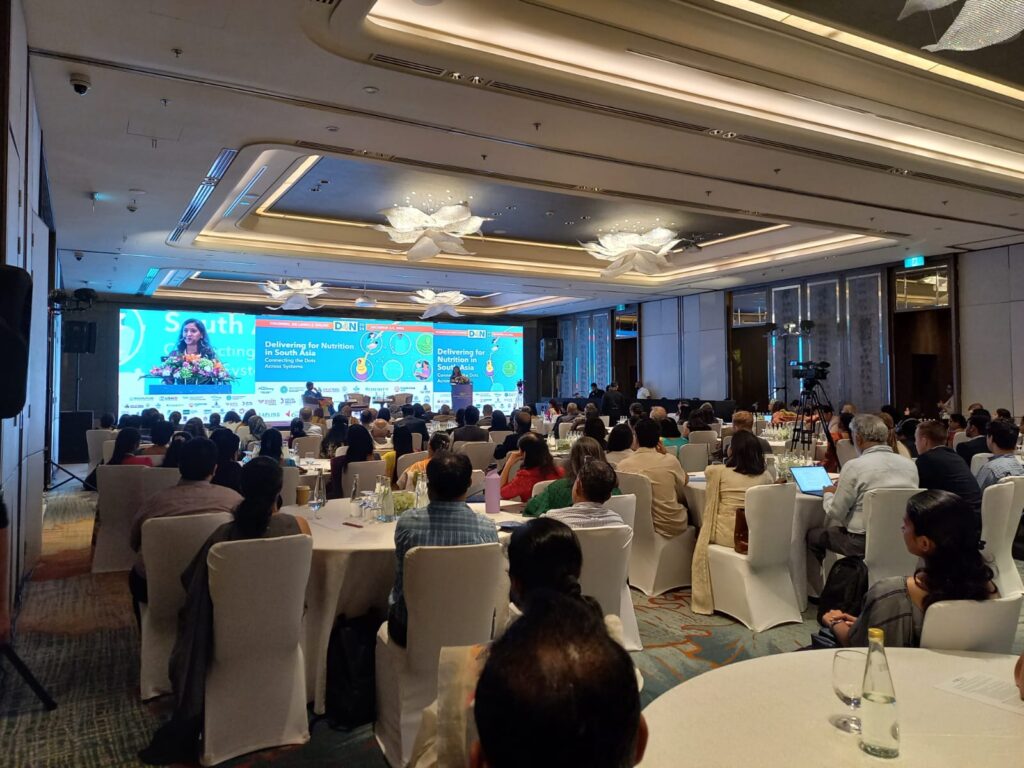
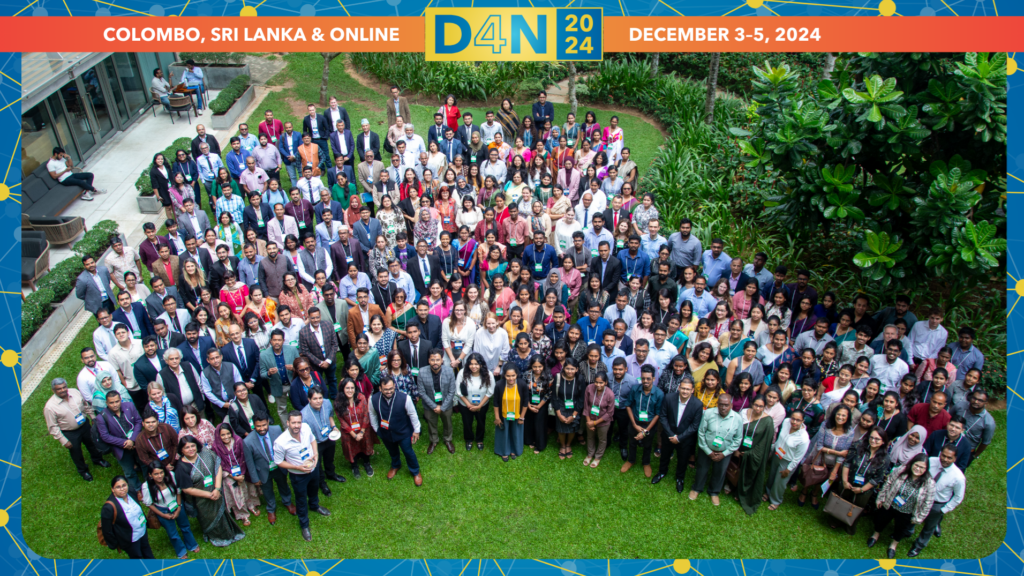
Insights for Policy and Practice: Moving Forward with Foresight
Key lessons from the conference emphasized the transformative power of foresight for achieving sustainable nutrition outcomes:
- Anticipatory Governance: Foresight can help policymakers proactively address emerging risks and opportunities.
- Systems Thinking: Integrating health, agriculture, and socio-economic perspectives is crucial for holistic solutions.
- Multi-Sectoral Collaboration: Effective partnerships between governments, academia, and the private sector are essential for impactful interventions.
- Investment Alignment: Foresight insights can guide investors to support high-impact initiatives that promote nutrition security.
Conclusion: Shaping the Future of Food Systems in South Asia
This conference reinforced the value of foresight methodologies in driving evidence-based decisions and fostering regional cooperation. It provided a platform to showcase Bangladesh’s commitment to forward-looking strategies and collaborative approaches that address the interlinked challenges of nutrition, climate resilience, and food security. Building on these insights, I look forward to advancing partnerships and implementing foresight-driven initiatives that contribute to sustainable food systems transformation across South Asia.
Foresight4Food is organizing its 4th Global Workshop in June titled “Reframing Food Futures: Making Foresight Transformative”. To raise the tip of the curtain on this exciting event, we have asked Mohammad Monirul Hassan, Foresight4Food Country Facilitator and Global Alliance for Improved Nutrition (GAIN) Advisor, to share some of his thoughts and expectations. Here is what he has to say:
As a food systems practitioner, what keeps me up at night
Bangladesh has made significant progress in food security and nutritional status over the past decade, with a growth rate of food production much higher than population growth. The country’s food grain production self-sufficiency has been sustainable and stable, and access to food has improved over time. However, the country still faces challenges in ensuring food and nutrition security for its growing population of around 170 million, projected to reach over 186 million by 2030.
The recent COVID pandemic and the subsequent Russian-Ukraine war have put enormous pressure on the food supply in the country, as Bangladesh is a net food importing country. We have achieved self-sufficiency in rice and some other products; however, the country is still dependent on wheat imports, edible oil, lentils, pulses, and spices. Due to the depreciation of Bangladesh’s Taka against the US Dollar, import costs have increased significantly which impacted the price of commodities both in the food and non-food sectors. The lower-income households are struggling to meet daily needs due to income losses and price hikes.
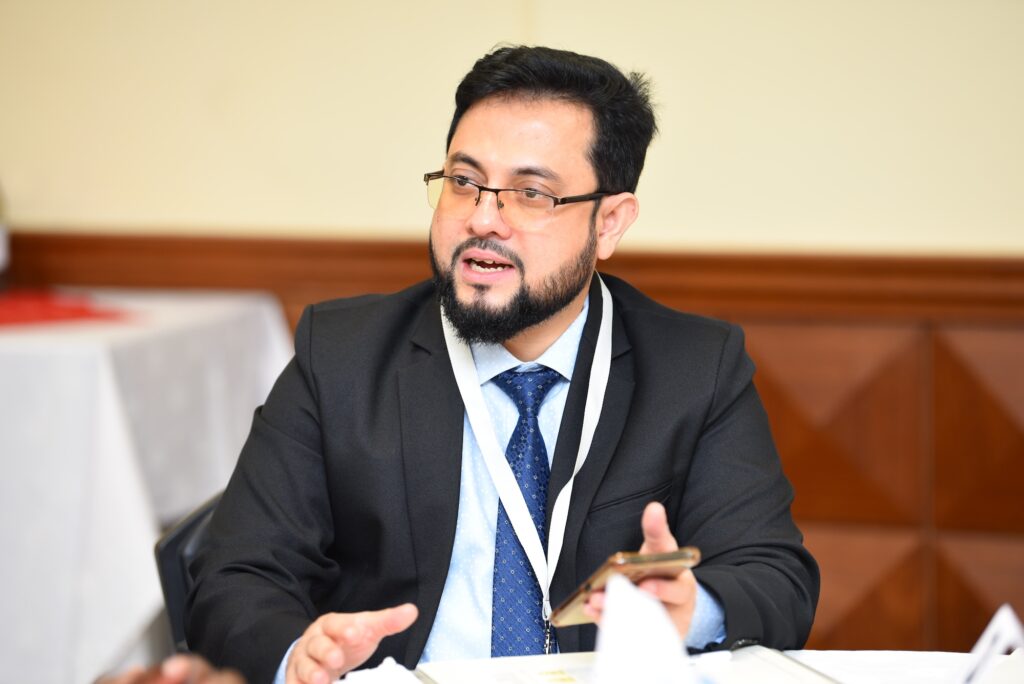
The recent COVID pandemic and the subsequent Russian-Ukraine war have put enormous pressure on the food supply in the country, as Bangladesh is a net food importing country. We have achieved self-sufficiency in rice and some other products; however, the country is still dependent on wheat imports, edible oil, lentils, pulses, and spices. Due to the depreciation of Bangladesh’s Taka against the US Dollar, import costs have increased significantly which impacted the price of commodities both in the food and non-food sectors. The lower-income households are struggling to meet daily needs due to income losses and price hikes.
As a Bangladeshi citizen and a food systems practitioner, a thought that concerns me is that the emerging negative trends and uncertainties like climate change, population growth, income inequality, agricultural labor scarcity, and barriers to access to safe and nutritious food may push back the decade-long achievement of the food and nutrition security of the country in the long run.
Climate change adaptation is the key priority in Bangladesh. Bangladesh is one of the most vulnerable countries in the world to climate change impacts. Developing climate-resilient technologies that exhibit tolerance to drought, flood, heat, cold weather, and salinity can help mitigate production losses caused by the frequent occurrence of extreme weather patterns anticipated due to climate change. Alongside conventional staple crops like rice, wheat, and maize, more focus is given to advancing technologies for protein-rich crops such as pulses and beans, as well as vitamin-rich fruits and vegetables. Enhanced breeds of cattle and poultry that possess the ability to endure harsh climatic conditions are being developed.
The focus is given to enhancing productivity through advances in crop, livestock, and fisheries management, either individually or in combination with genetic enhancements. Improved management methods in agriculture can enhance profitability for producers while also promoting sustainability by optimizing the use of inputs such as seeds, fertilizers, pesticides, and water, and lowering the environmental impact of farming. To improve the food and nutritional situation, more emphasis needs to be placed on coordination, enhancing partnership and policy coherence, and strengthening implementation means.
FoSTr’s support in Bangladesh’s vision of sustainable food systems
Food system transformation is high on the political agenda in Bangladesh with the formulation of the National Food and Nutrition Security Policy 2020, its Plan of Action (PoA) 2021-2030, National Agricultural Policy 2018, and Bangladesh’s contribution to the UN Food System Summit 2021 and the UNFSS +2 Stock Taking Moments (STM). Bangladesh has outlined its “Making Vision 2041: A Reality-Perspective Plan of Bangladesh 2041”, Dhaka Food Agenda 2041, Smart Bangladesh Vision 2041, and the Bangladesh Delta Plan 2100, which depict the country’s aspiration and preparation towards a developed nation.
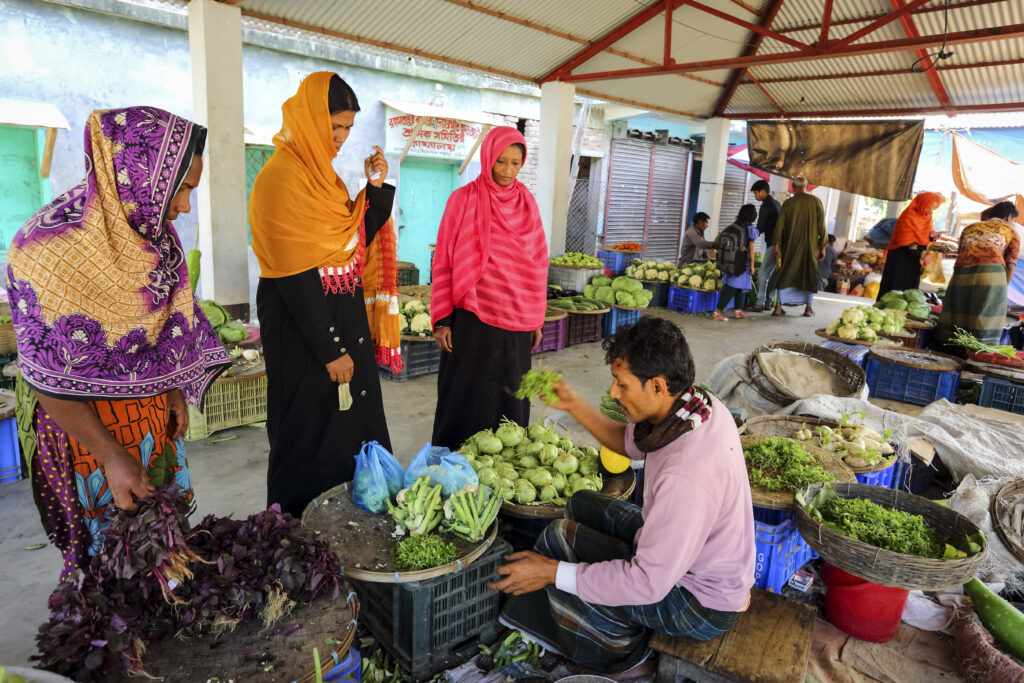
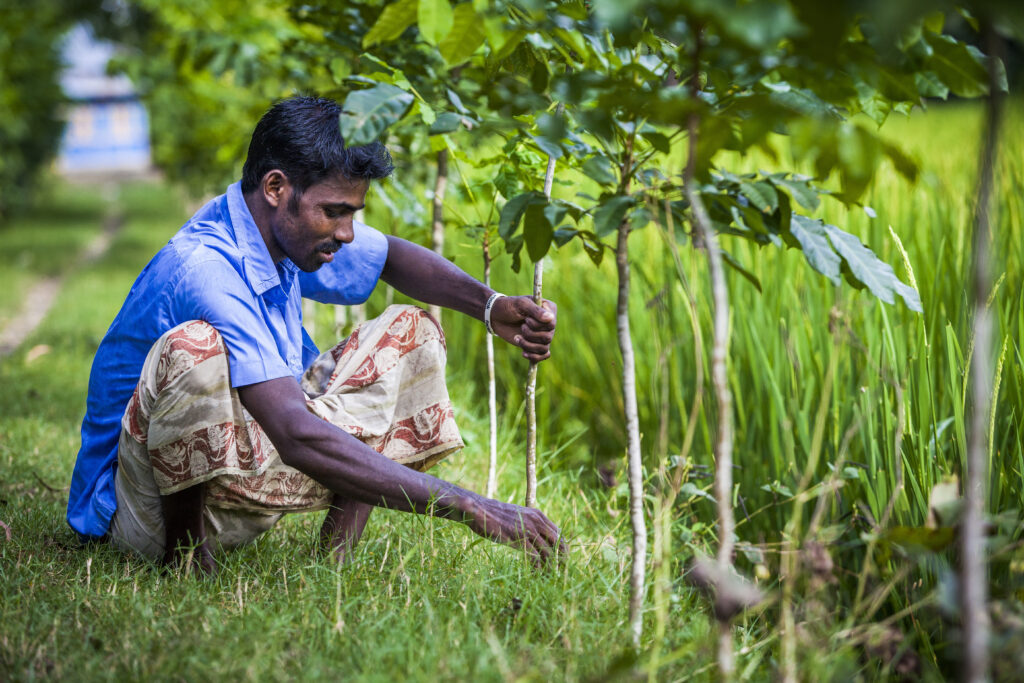

To support that, the Foresight for Food Systems Transformation (FoSTr) program is providing a flexible decision-support facility to support Bangladesh with evidence-based foresight and scenario analysis that goes along the country’s vision to work towards sustainable food systems in Bangladesh.
As part of reporting to UNFSS STM+4 (2025) and fulfilling the Honorable Prime Minister’s commitment to UNFSS, foresight analysis of the food systems will complement the data, research, risk analysis, and scenarios development for the future food systems and provide necessary guidance for food systems transformation.
Expectations of the Foresight4Food Global Workshop experience
For this year’s Global Foresight4Food Workshop, the theme is “Reframing Food Futures: Making Foresight Transformative”. What I seek from this workshop is an opportunity for cross-country learning about using foresight tools, their drawbacks, and ways for improvement for better foresight analysis, as well as areas of collaboration, partnerships, and future investments for the country’s food systems transformation. I also think this will be a wonderful opportunity to showcase how Bangladesh is transforming its food systems with its various challenges.
From a personal point of view, I expect that the learning and insight of the workshop will help me understand the food systems transformation agenda in Bangladesh. It will also help me in policy advocacy in prioritizing areas and activities that build sustainable and resilient food systems.
Another aspect of the Foresight4Food Global Workshop that I hope for is that it will create space for highly interactive dialogue, igniting creativity and sparking actionable progress on the foresight agenda, offering cutting-edge updates on foresight practice and applying foresight to country realities.
The workshop will contribute to understanding how other countries are transforming their food systems, what works and what doesn’t, what matters most, and what supports are required, etc. The workshop will be a great opportunity where you’ll be able to build networks, partnerships, investment opportunities, and investment progress tracking and implementation. Moreover, the workshop will help governments reframe some of the initiatives and prioritize them based on the political economy contexts.
All in all, it will be truly exciting to see energetic participation from food systems researchers, practitioners, and government and private sector representatives gathered under one roof to talk about making foresight transformative.